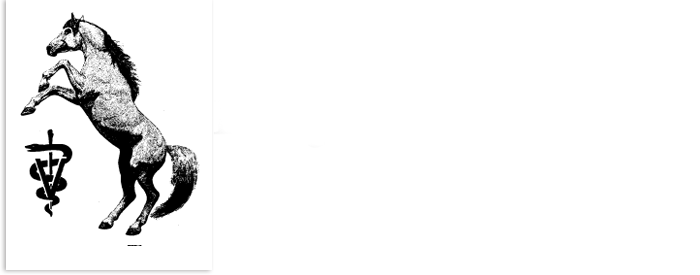Medical Management of the Excitable Mare and Gelding
Cranky behavior can be associated with mares. Pinning of ears, bucking, and kicking at stall walls can be a source of frustration and can interfere with the performance and enjoyment of your horse.
Equine Ulcer Screening Now Available In Stall-Side Test
Veterinarians and horse owners often wonder if a horse has an ulcer when they see a horse with chronic low-grade colics, a horse that becomes girthy, develops a poor appetite, has a poor attitude towards training, a dull hair coat, decreased performance, or becomes a stall kicker, among other issues. Now a stall side test that can give you results in about 10 minutes costing only $54 is available (price may vary through the years).
Keeping Your Horse Cool During the Summer Heat
With summer upon us, competitions and horse adventures are in full swing. As many of you experienced it can get hot. VERY HOT during these outings and at home. One way to maximize your horse's performance and attitude is to help them keep cool by setting up a fan and misting systems. Such a system can help cool your horse's stall environment and make them much more comfortable during the days that often approach or exceed triple digits here in California.
Summer Sores
Summer Sores are sores often red or red and yellow that look like open sores that won't heal. They are often quite itchy to the horse. As the name implies summer time is the time they are most commonly seen but lately I have been seeing them more often and much longer into the fall until we get a good freeze.
Intestinal Stone (Enterliths) a colic risk
Enteroliths are large, hard as a rock, concretions of minerals which develop in the large intestine of a horse. They form when minerals come out of solution. The principal mineral is magnesium ammonium phosphate. The minerals congregate around some hard objet called the nidus. The nidus can be a nail, a pin, or a coin, but most commonly is a small stone.
New Information about the Snotty Nose – Respiratory Infections in Horses
A snotty nose, a cough, a fever and poor appetite all signs that your horse is developing a respiratory infection. It can derail your pleasure riding, training and competition, or travel plans with your horse.
Colic Risk Factors
Colic is the biggest cause of premature death in horses. It shows up unexpectedly. A horse can be fine in the morning and critically ill by evening. Several studies have looked at risk factors in cases of colic.
Treatment Approaches for Equine Melanomas
Melanomas are tumors that tend to be found in the skin of grey horses. Typically they are dark brown or black firm raised areas. They are the third most common skin tumors in horses following Sarcoids and Squamous Cell Carcinomas.
Ear Plaques and Sarcoid Tumors
Skin conditions are common issues in equine practice. Among those brought to my attention are Ear Plaques and Sarcoid Tumors.
Cribbing and Wind Sucking
During wind sucking or cribbing horses grab a fixed surface with the upper teeth, arch their necks, and suck in air. Cribbing and wood chewing are frequently the same.
Dental Care: Floating, Hooks, Loose Teeth, and Wolf Teeth
Dental problems are a challenging and important part of routine care and medical care in equine practice. Floating, the routine filing of horses' teeth every year to year and a half maximizes a horse's ability to chew his food and respond to the bit.
Hypothyroidism
Is your horse always a little lethargic. Does it have a cresty neck. Has it foundered? These are among the signs of a hormone deficiency known as hypothyroidism.
Keeping Weight on the Older Horse
This is a problem I never thought I would face as a veterinarian. A horse that won't eat enough? Come on. You must be kidding. Yet very frequently I am asked to look at an older horse who just cannot keep his weight up.
NARCOLEPSY - the Sleeping Disease
Narcolepsy is most commonly known in humans. Characterized by uncontrolled periods wherein the affected person falls asleep, the disease might appear comical if it were happening to someone else. Although extremely rare, it can occur in horses.
Skin Conditions - Understanding Sarcoid Tumors
Sarcoids are the most common skin tumors occurring in horses. The most common sites are the head (ears, eyelids, mouth), legs and the abdomen. I have seen them at many other sites including the tail, chest and neck.
What you need to know about Cleaning Your Horse's Sheath
When was the last time you cleaned your horses Sheath? Well, listen to this story! I was called out to examine a pony with a funny looking skin on its tummy. The pony had been out and the pasture most of the time.
Pyrantel Pamoate: A New Approach To De-worming
All horse owners have heard or been witness to equine colic. This broad term which means "abdominal pain" can range from any where from a little gas to a twisted intestine. It is the leading cause of premature death in horses.
Veterinary Advisory for Winter Horse Show Competitors
No one wants to go to a horse show only to have their horse get sick there or on the way. For Hunter/Jumper competitors as well as competitors in other disciplines getting ready to go a winter circuit there are a number of veterinary considerations.

